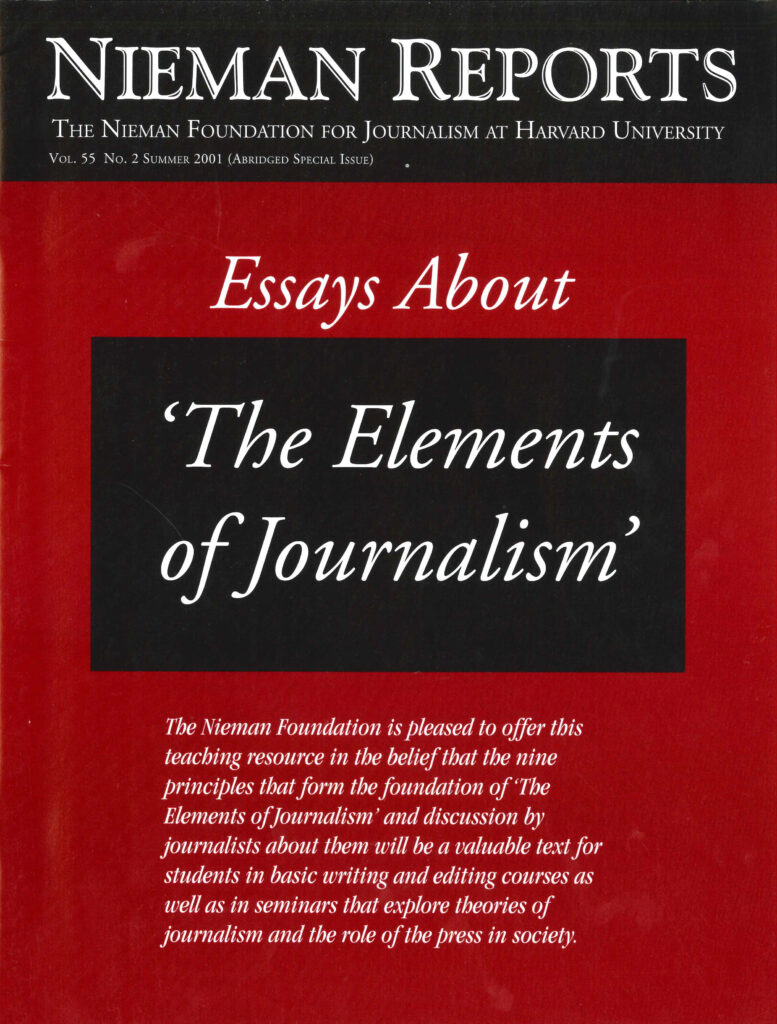You Have a Right to Know
KGUN9 will ask the tough questions, conduct the investigations necessary, and give the timely information needed to serve the public interest and protect public safety.
You Have a Right to Ethical Newsgathering
RELATED ARTICLE
"Inviting Viewers to Enter the Newsroom"
- Forrest CarrKGUN9 subscribes to the Society of Professional Journalists’ Code of Ethics, which requires journalists to seek the truth and report it, to minimize harm, to act independently, and to be accountable.
You Have a Right to Privacy
Our journalistic duty and the public’s right to know often require us to place people and organizations in the news who don’t wish to be there. We will never do so in a cavalier or insensitive fashion and will always carefully consider privacy concerns as we weigh the importance of a story. We will never stalk or hound the innocent victims of crime or tragedy.
You Have a Right to Positive News
Much of the news our journalistic duty requires us to cover is by nature ugly. We will not filter out such stories in any way. However, we will take extra steps to find and report positive or uplifting stories which reflect the true character of life in our community. We will meet regularly with members of our community in order to discover those stories in person.
You Have a Right to Relevant Crime Coverage*
We recognize that an over-emphasis on crime coverage would harm our community through portraying it in a false light of negativism. We will cover crime in such a way as to provide context, meaning, perspective and relevance. Before airing any crime story we will weigh its newsworthiness with the following questions:
Does the story spotlight a new crime trend or issue at the neighborhood level of which residents should be aware?
* The station’s crime coverage principles were inspired by the work of the late Carole Kneeland, news director at KVUE-TV in Austin, Texas.
You Have a Right to Solution-Oriented Journalism
When appropriate we will be “On Your Side” and attempt to find or spotlight solutions to individual and community problems. We will help empower our viewers to better their lives and community.
You Have a Right to Hold Us Accountable
We will invite and respond to public input and feedback on our newsgathering decisions and philosophy. Our KGUN9 Viewer Representative will serve as a viewers’ champion within our newsroom. We will present and respond to viewer feedback within our newscasts on a regular basis. We will eagerly and diligently investigate complaints, publicly admit any mistakes, and correct them prominently.
We will update and amend this document as necessary based on changing community needs, issues and values, and on viewer feedback.
KGUN9 will ask the tough questions, conduct the investigations necessary, and give the timely information needed to serve the public interest and protect public safety.
You Have a Right to Ethical Newsgathering
RELATED ARTICLE
"Inviting Viewers to Enter the Newsroom"
- Forrest CarrKGUN9 subscribes to the Society of Professional Journalists’ Code of Ethics, which requires journalists to seek the truth and report it, to minimize harm, to act independently, and to be accountable.
You Have a Right to Privacy
Our journalistic duty and the public’s right to know often require us to place people and organizations in the news who don’t wish to be there. We will never do so in a cavalier or insensitive fashion and will always carefully consider privacy concerns as we weigh the importance of a story. We will never stalk or hound the innocent victims of crime or tragedy.
You Have a Right to Positive News
Much of the news our journalistic duty requires us to cover is by nature ugly. We will not filter out such stories in any way. However, we will take extra steps to find and report positive or uplifting stories which reflect the true character of life in our community. We will meet regularly with members of our community in order to discover those stories in person.
You Have a Right to Relevant Crime Coverage*
We recognize that an over-emphasis on crime coverage would harm our community through portraying it in a false light of negativism. We will cover crime in such a way as to provide context, meaning, perspective and relevance. Before airing any crime story we will weigh its newsworthiness with the following questions:
- Is there an immediate danger or threat to the public?
- Is immediate action required?
- Is the safety or welfare of children involved?
- Is there a larger issue with public policy implications?
- Does the story touch, or should it touch, hearts in our community?
Does the story spotlight a new crime trend or issue at the neighborhood level of which residents should be aware?
* The station’s crime coverage principles were inspired by the work of the late Carole Kneeland, news director at KVUE-TV in Austin, Texas.
You Have a Right to Solution-Oriented Journalism
When appropriate we will be “On Your Side” and attempt to find or spotlight solutions to individual and community problems. We will help empower our viewers to better their lives and community.
You Have a Right to Hold Us Accountable
We will invite and respond to public input and feedback on our newsgathering decisions and philosophy. Our KGUN9 Viewer Representative will serve as a viewers’ champion within our newsroom. We will present and respond to viewer feedback within our newscasts on a regular basis. We will eagerly and diligently investigate complaints, publicly admit any mistakes, and correct them prominently.
We will update and amend this document as necessary based on changing community needs, issues and values, and on viewer feedback.



